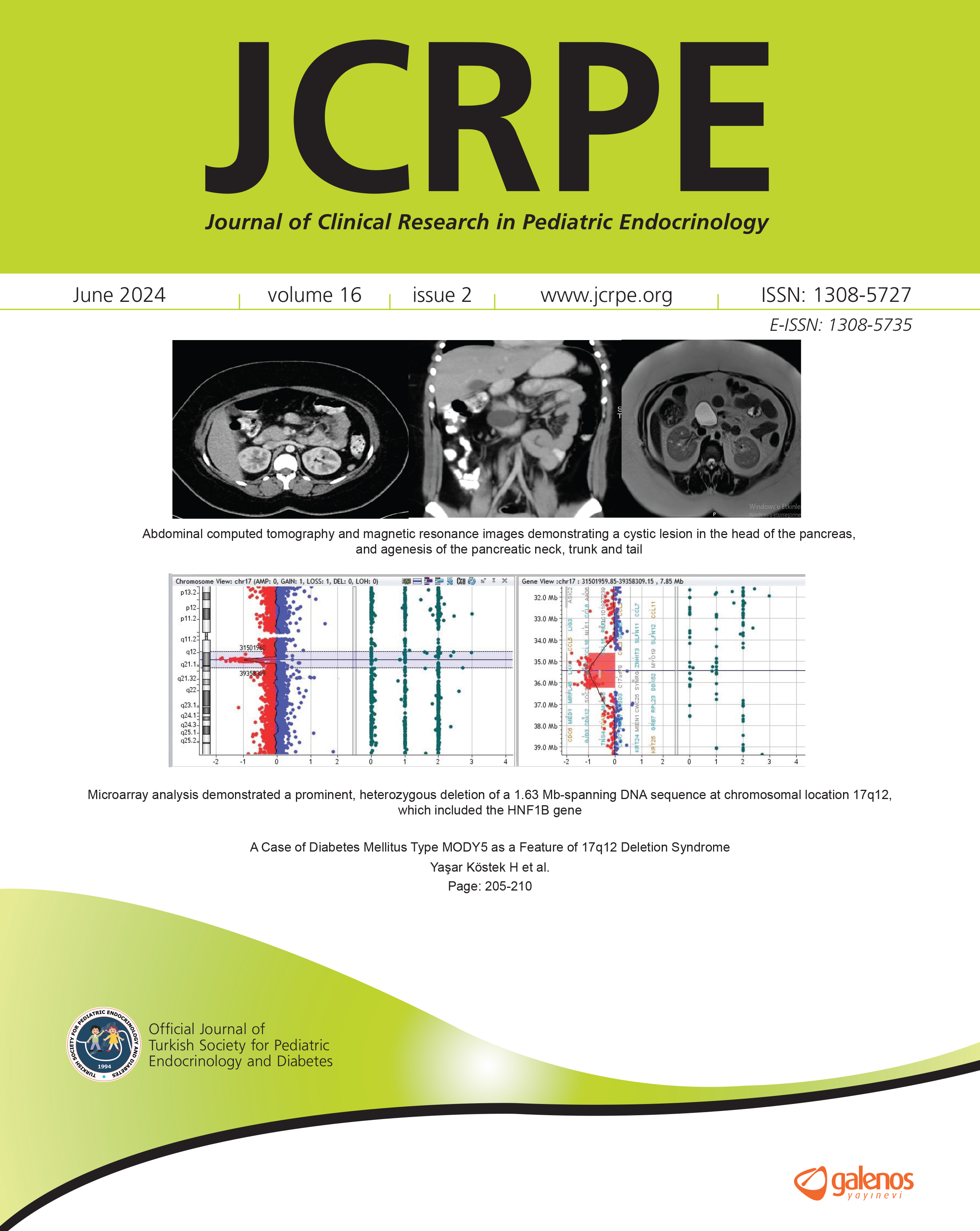Low Complement C1q/TNF-related Protein-13 Levels are Associated with Childhood Obesity But not Binge Eating Disorder
İbrahim Mert Erbaş1, Ahu Paketçi1, Serkan Turan2, Ali Rıza Şişman3, Korcan Demir1, Ece Böber1, Ayhan Abacı11Dokuz Eylül University Faculty of Medicine, Department of Pediatric Endocrinology, İzmir, Turkey2Bursa Uludağ University Faculty of Medicine, Department of Child and Adolescent Psychiatry, Bursa, Turkey
3Dokuz Eylül University Faculty of Medicine, Department of Biochemistry, İzmir, Turkey
INTRODUCTION: Objective: C1q/tumor necrosis factor-related proteins (CTRPs) are recently described members of the adipokine family. CTRP-13, a new member of this family, has been shown to increase insulin sensitivity and had an anorexigenic effect on food intake in experimental studies. The aim was to investigate serum CTRP-13 levels in children with obesity, and its relationship with other adipokines, metabolic parameters, or binge eating disorder (BED).
METHODS: Methods: A cross-sectional study was conducted with 105 pubertal children attending a single center. Clinical (metabolic syndrome, BED) and biochemical (glucose, insulin, lipids, leptin, adiponectin, CTRP-13 levels) parameters were assessed.
RESULTS: Results: Sixty children with obesity [24 males (40%); median age 14.7 (13.0-16.4) years] and 45 healthy controls [15 males (33.3%); median age 15.2 (14.1-16.5) years] were included. Serum adiponectin and CTRP-13 levels were significantly lower in children with obesity than controls (7.1 vs 20.1 μg/mL, p<0.001; 64.7 vs 103.8 ng/mL, p<0.001, respectively). CTRP-13 levels correlated negatively with body mass index (Spearman rho=-0.230, p=0.018) and positively with high-density lipoprotein-cholesterol levels (Spearman rho=0.218, p=0.026). There was no significant difference in serum CTRP-13 concentrations in terms of the presence of metabolic syndrome or BED.
DISCUSSION AND CONCLUSION: Conclusion: Childhood obesity seems to be causing dysregulation in adipokine production and function, including the down-regulation of CTRP-13. The positive correlation between CTRP-13 and HDL-C levels suggested a possible effect of this adipokine on lipid metabolism. Thus CTRP-13 may be a novel biomarker for dyslipidemia in childhood obesity.
Corresponding Author: Ayhan Abacı, Türkiye
Manuscript Language: English



























